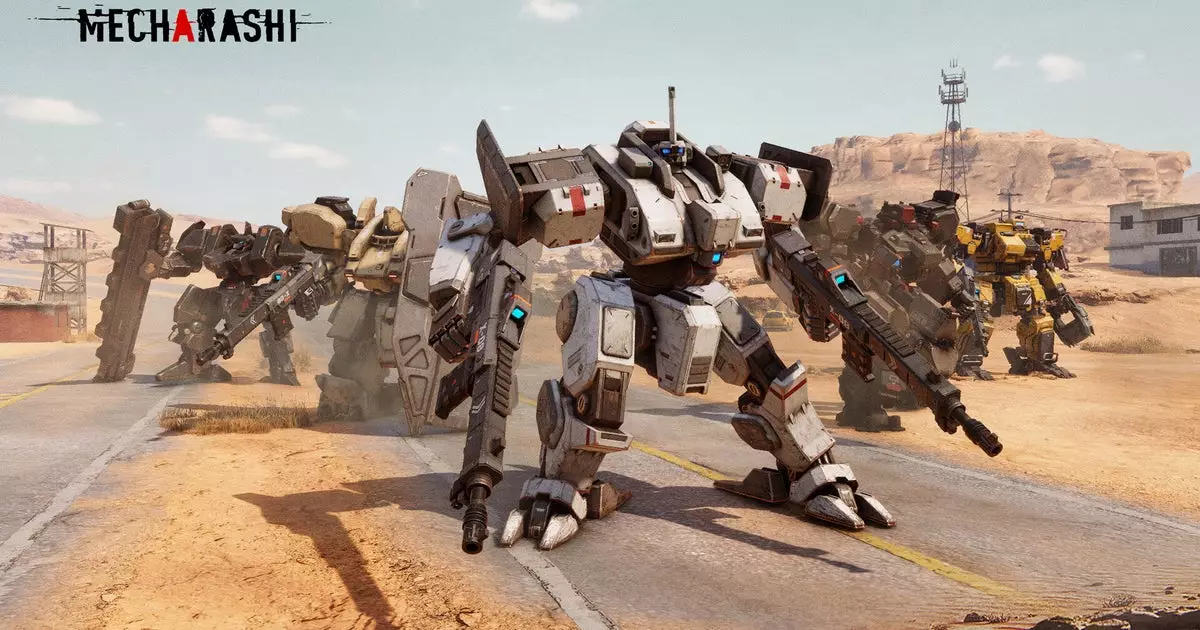As a seasoned gamer, the news surrounding the Front Mission franchise is nothing short of a heart-wrenching revelation. The anticipated release of *Front Mission 2089: Borderscape*, a title that was to rejuvenate the beloved series, was abruptly canceled by Square Enix in 2022. Developed by BlackJack Studio, the game was intended for iOS and Android platforms, raising hopes for a resurgence of tactical mech gaming on mobile devices. Regrettably, this optimism was short-lived, and the cancellation not only dashed hopes but also left fans bewildered at the motivations behind such a decision.
The implications of the cancellation have only deepened with the ensuing legal disputes. Square Enix, the powerhouse behind franchises like Final Fantasy, is now embroiled in litigation with BlackJack Studio. The situation escalated when the studio released *Metal Storm* (also known as *Mecharashi*) in October 2024, a title that seemingly borrows heavily from the principles laid down in their earlier agreement regarding *Borderscape*. This development certainly raises eyebrows and complicates the landscape for game development within established franchises.
Legal Turmoil and Intellectual Property Claims
The crux of the legal battle lies in Square Enix’s allegations that BlackJack utilized proprietary materials from their previous collaboration to create *Mecharashi*. This lawsuit, filed in both the United States and Japan, has caused quite a stir in the gaming community and beyond. Square Enix is not merely disgruntled; they demand significant restitution for what they perceive as a breach of intellectual property rights, seeking damages of $150,000 per infringement. This scenarios paints a disturbing picture of the fine line developers must tread when working under contracting agreements with major publishers.
BlackJack’s game, a turn-based tactical combat system, shines a spotlight on a genre that many fans hope will enter a golden age. With gameplay mechanics reminiscent of classic Front Mission titles, *Mecharashi* manages to evoke a sense of nostalgia, albeit under a legal cloud. The existence of an English-language Steam page suggests that the developers aspire for a broader audience—even if external forces threaten to bench that ambition.
The Future of Tactical Mech Games
Despite the lawsuits, there is an undeniable warmth to the mech designs showcased in *Mecharashi*. They feel softer, not as rigid as the earlier iterations from the Front Mission series that many of us hold dear. This aesthetic innovation hints at a transformation within the genre itself—a shift toward more appealing visual storytelling without sacrificing tactical depth.
It is surprising how tightly intertwined nostalgia is with modern gaming aesthetics, and *Mecharashi* taps into that sentiment. Players are seeking more than just gameplay; they crave an immersive experience that captures the essence of what made the original titles great while pushing boundaries. As the dust settles on the legal front, one can only hope that these developments lead to a renaissance for tactical mech games, reaffirming their place in the gaming ecosystem.
With uncertainty looming over future releases and ongoing legal complications, fans can only watch closely as this narrative unfolds. The intersection of innovation, nostalgia, and intellectual property rights presents a complex landscape, one that will leave a lasting impact on how we think about mech games of the future.

